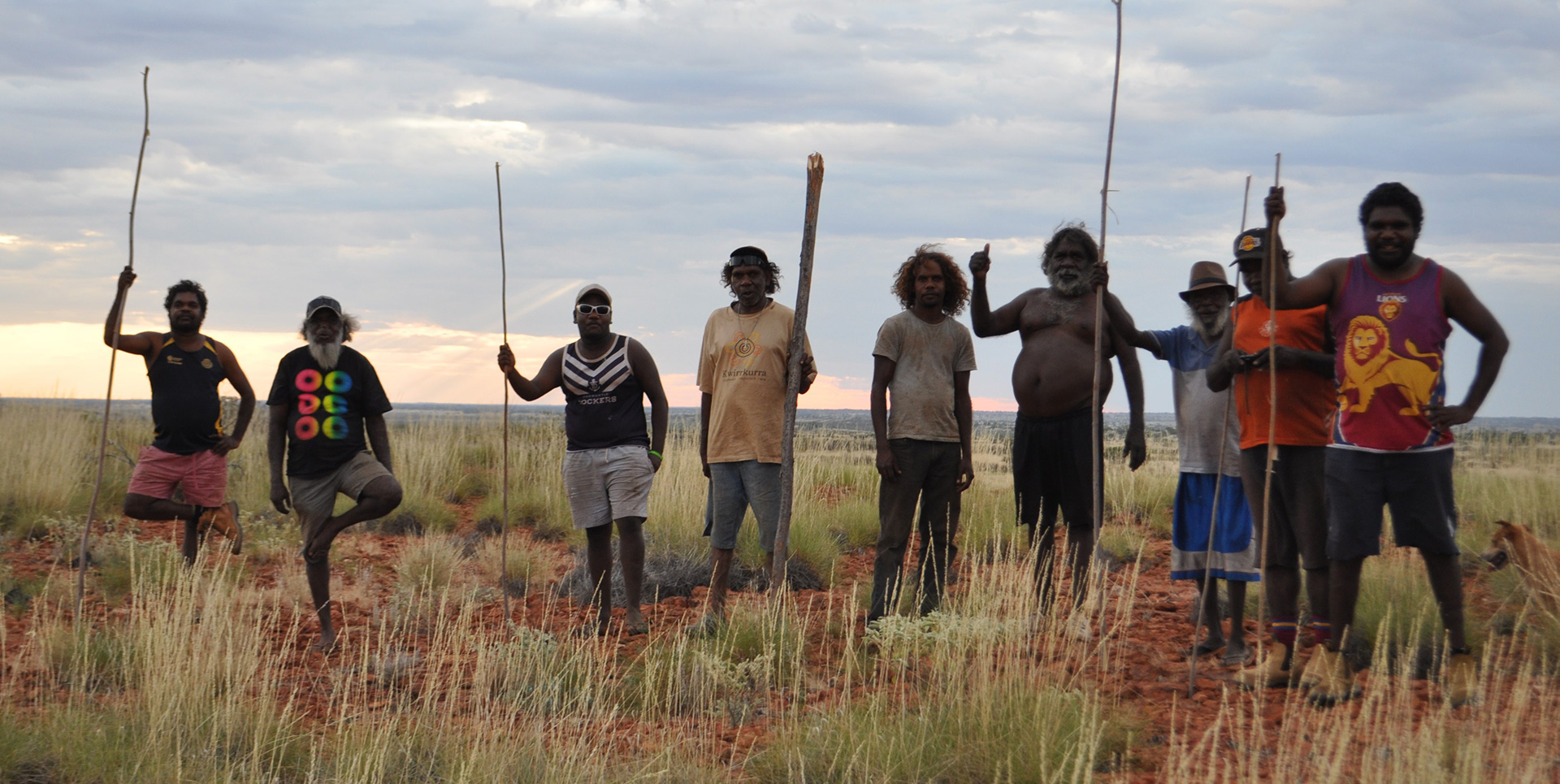SHIELDS FOR LIVING, TOOLS FOR LIFE

Shields for Living, Tools for Life is a cultural healing program for young offenders from the Alice Springs region to reduce the likelihood of reoffending and as an alternative to detention.
Approach: Connection to culture
Shields for Living, Tools for Life’ (SFLTFL) is a dual therapeutic and cultural program; the therapeutic being found in cultural traditions. The youth are guided by cultural Elders on how to make traditional tools of hunting, ceremony, Aboriginal Dreamtime, and Law. The program emphasises the importance of reflection, healing and reparation.
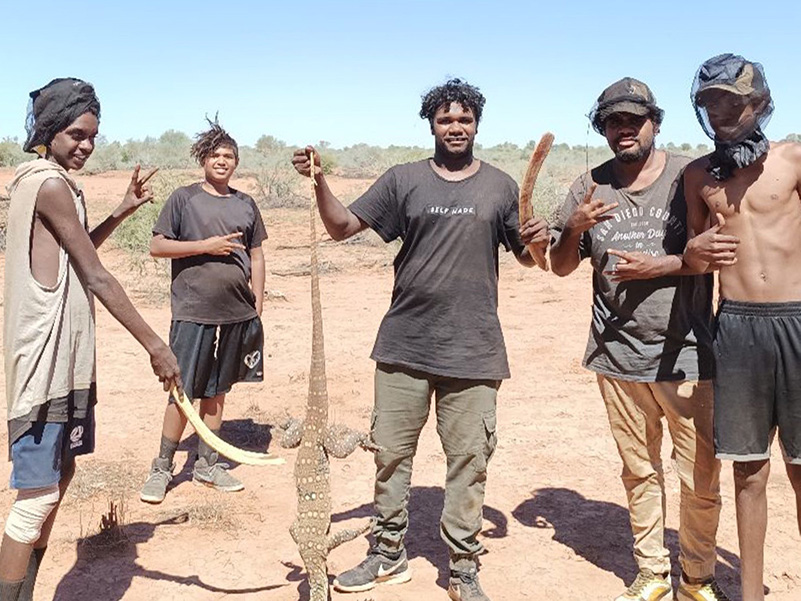
Location: On Country, in town, in detention
The program takes place on Country when possible (up to 5 days), in town in Alice Springs at a shade shelter located at Desert Knowledge Precinct (day camp) and in the Alice Springs Youth Detention Centre (YDC – day camp). Our team work alongside cultural mentors from participants communities. This program has been delivered since 2019.
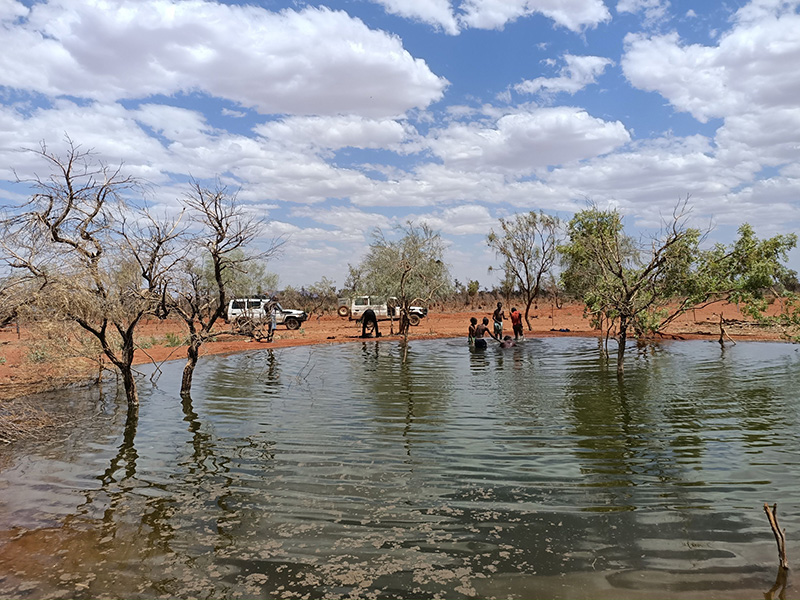
Core components of SFLTFL
Reflective psychological meetings to talk about the cycle of trauma and offending are integrated throughout the program. Each participant will participate in the following therapeutic activities: (1) Cultural Camp (2) Reflective Group Meetings (3) Cultural healing Meetings. Detailed information below.
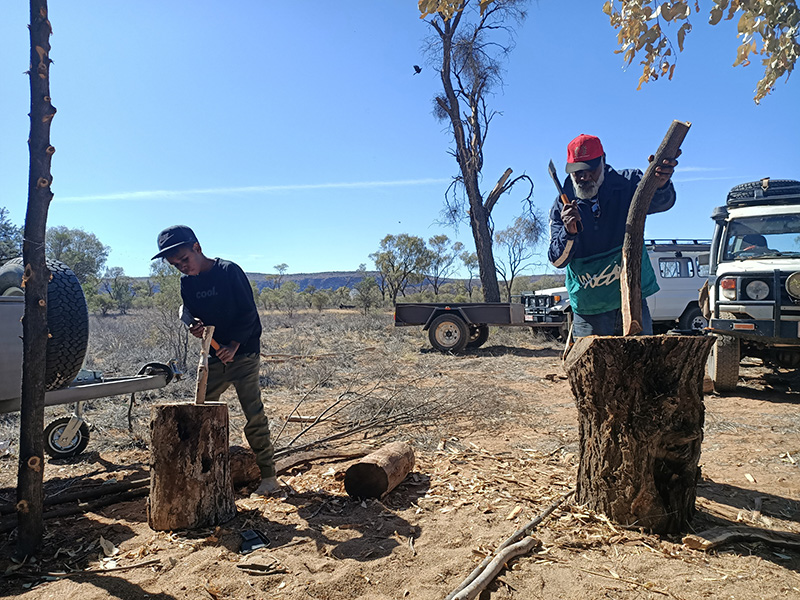
Benefits to young people
CASSE’s approach builds self-esteem, identity, capacity, wellbeing and pride through: (1) Transmission of cultural knowledge and skills about tjilirra (traditional tools), caring for country, traditional hunting and gathering, singing song lines, dancing and visiting Dreaming sites; (2) Strengthening connections between generations; Facilitating culturally appropriate trauma-informed therapy on traditional lands; and (3) Mentoring and training.
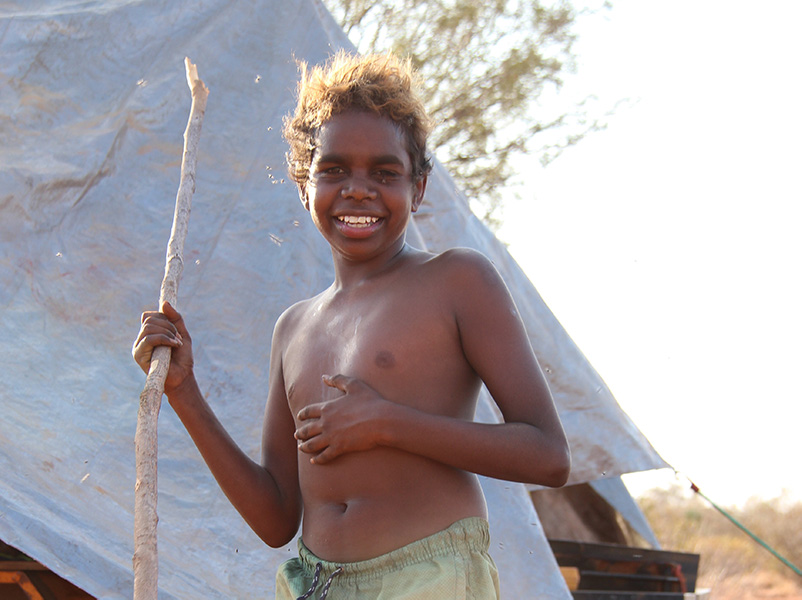
Eligibility
PARTICIPANTS MUST
(1) Be of Aboriginal or Torres Strait Islander decent
(2) Be between the ages of 12 and 25
(3) Have come into contact with the Youth Justice System.
FOR MORE INFORMATION AND REFERRALS CONTACT:
NIKOLAS ROSALSKI
T: 0428 500 489
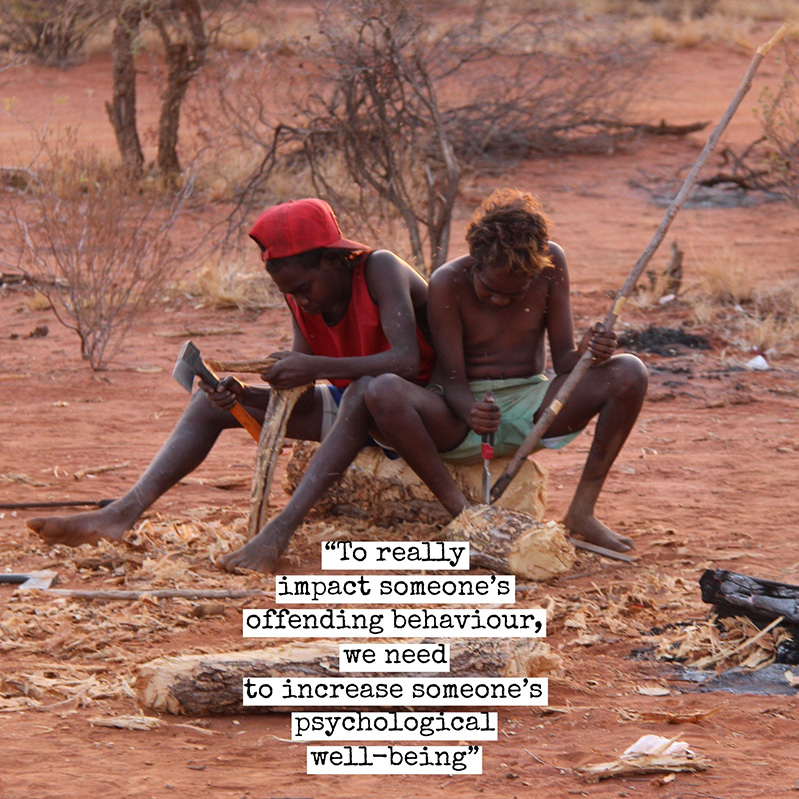
CASSE’s Model: Traditional tool making
‘Shields for Living, Tools for Life’ is based on the flagship Men’s Tjilirra Movement (MTM) model. Tjilirra are traditional tools.
We use old tools for new tools for living in our place-based program, which engages elders to transfer or “give” cultural knowledge on country to the youth. The men and youth are mentored to make traditional tools, such as shields and boomerangs. MTM facilitates regular meetings about the ‘problem life’ of violence and how to ‘wake up strong’.
Consultants
‘Shields for Living, Tools for Life’ is delivered by consultants with long standing relationships within the participating communities.
Director, Clinical and Forensic Psychologist and Psychotherapist with over 30 years of experience in Central Australia.
Cultural Mentor and Camp Coordinator and Manager for the Shields for Living Tools for Life Program.
CASSE & SFLTFL Program Co-ordinator.
MTM Founder, Nangkari and Cultural Consultant
Walter Jugadai
Nangkari and Cultural Consultant.
Wayne Scrutton
Cultural Consultant
Core Components Explained
CULTURAL CAMPS
The SFLTFL program is run as a camp on country (for up to 5 days), a day session at Desert Knowledge Australia (DKA) and a day session with youth at the Alice Springs Youth Detention Centre.
The program is led by the Men’s Tjilirra Movement (MTM) and an Aboriginal mentor, involving participants from the same language group, ideally held on the participant’s country and include family/Elders from that community. The SFLTFL program enables cultural practices to develop cultural resiliency:
- Learning and the making of traditional tools, including making a traditional shield for protection to strengthen spirit.
- Engaging in cultural practices such as ‘caring for country’, tjukurrpa stories and song and dance, and hunting and gathering and traditional cooking skills.
- Making a traditional tool for repatriation and reparation (tools are given to commercial/residential property damaged where possible).
- Campfire storymaking about offending, troubles, healing, repatriation and cultural stories.
REFLECTIVE GROUP MEETINGS
After each Cultural Camp, participants attend a one-day Reflective Group Meeting, facilitated by a clinical psychologist/psychotherapist and/orcultural consultant. Elders/family/carers who attend the Cultural Camp also participate in the session. The Reflective Group Meetings determine the needs of participants.
CULTURAL HEALING MEETINGS
Cultural Healing Meetings will be held by a forensic psychologist/and or cultural leader. The aim is to increase awareness and understanding of motivations, triggers, patterns and impacts on behaviours, as well as enhance empathy for the other and develop new stories and tools for good lives.
Making tjilirra is special – it is the spirit of our grandfather inside you.
